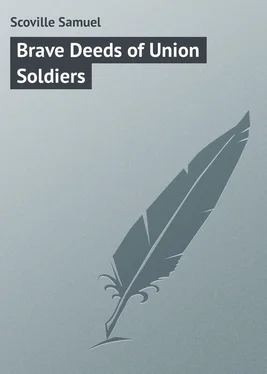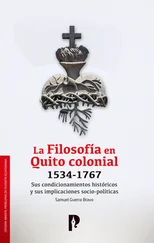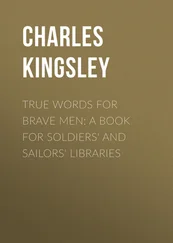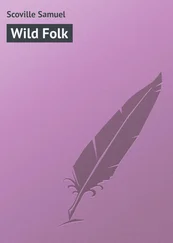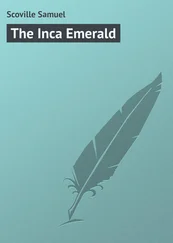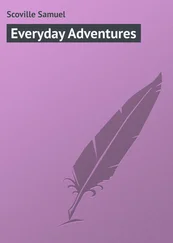Samuel Scoville - Brave Deeds of Union Soldiers
Здесь есть возможность читать онлайн «Samuel Scoville - Brave Deeds of Union Soldiers» — ознакомительный отрывок электронной книги совершенно бесплатно, а после прочтения отрывка купить полную версию. В некоторых случаях можно слушать аудио, скачать через торрент в формате fb2 и присутствует краткое содержание. Жанр: foreign_prose, foreign_humor, Анекдоты, на английском языке. Описание произведения, (предисловие) а так же отзывы посетителей доступны на портале библиотеки ЛибКат.
- Название:Brave Deeds of Union Soldiers
- Автор:
- Жанр:
- Год:неизвестен
- ISBN:нет данных
- Рейтинг книги:5 / 5. Голосов: 1
-
Избранное:Добавить в избранное
- Отзывы:
-
Ваша оценка:
- 100
- 1
- 2
- 3
- 4
- 5
Brave Deeds of Union Soldiers: краткое содержание, описание и аннотация
Предлагаем к чтению аннотацию, описание, краткое содержание или предисловие (зависит от того, что написал сам автор книги «Brave Deeds of Union Soldiers»). Если вы не нашли необходимую информацию о книге — напишите в комментариях, мы постараемся отыскать её.
Brave Deeds of Union Soldiers — читать онлайн ознакомительный отрывок
Ниже представлен текст книги, разбитый по страницам. Система сохранения места последней прочитанной страницы, позволяет с удобством читать онлайн бесплатно книгу «Brave Deeds of Union Soldiers», без необходимости каждый раз заново искать на чём Вы остановились. Поставьте закладку, и сможете в любой момент перейти на страницу, на которой закончили чтение.
Интервал:
Закладка:
Castle Despair had again been broken by Mr. Great Heart.
CHAPTER III
TWO AGAINST A CITY
It takes brave men to fight battles. It takes braver men to face death without fighting.
In the spring of 1862 New Orleans, the Queen City of the South, was blockaded by the Union fleet. No one could come in or go out. The grass grew in her empty streets. The wharves were deserted and cobwebs lay on the shut and barred warehouses. The river itself, which had been thronged with the masts and funnels of a thousand crowded craft, flowed yellow and empty as the Amazon.
As business stopped and wages grew scarce and scarcer, the fierce, dangerous part of the population which comes to the surface in times of siege began to gain more and more control of the city. For years there had been a secret society of criminals in New Orleans which had often controlled her city government. It was known as the "Thugs." Heretofore they had always worked in secret and underground. Now criminals who formerly would only come out at night and secretly, were seen on the streets in open day. As the Union lines closed around the city by sea and land, the crowds of men and women without money and without work became as fierce and bitter and dangerous as rats in a trap. For a while they told each other that the city could never be taken. Nothing afloat, they said again and again, can pass by the great chain and the sunken ships that block the river. If they could they would sink under the withering fire of Fort Jackson, a great star-shaped fort of stone and mortar, or Fort St. Phillip with its fifty-two guns which could be brought to bear on any vessel going up or down the river. Beyond the forts was a fleet of rams and gunboats and in a shipyard over at Jefferson, one of the suburbs of New Orleans, was building the great iron-clad Mississippi , which alone they felt would be equal to the whole blockading fleet. So thought and said the swarming unemployed thousands of New Orleans. Finally came a dreadful day when the tops of the naked masts of the hated Yankee fleet showed against the evening sky across one of the bends of the river. Then came the roar of distant guns for a day and a night as the Union vessels attacked the forts and concealed batteries. Still the people believed in their defenses although the firing came nearer and nearer. Not until they saw the city troops carry the cotton out of the cotton-presses down to the wharves to be burned in miles of twisting flame to save it from the Union Army did they realize how close was the day of the surrender of the city. Then all the empty ships which had been moored out in the river were fired and the warehouses of provisions still left were broken open. Mobs of desperate men and women surged back and forth fighting for the sugar and rice and molasses with which the wharves were covered. Suddenly around Slaughter House Point, silent, grim and terrible, came the black fleet which had safely run the gauntlet of forts, gunboats, batteries and torpedoes. For the first time since the war had begun, the Stars and Stripes floated again in sight of New Orleans. As the fleet came nearer and nearer, the crowds which blackened the wharves and levees of New Orleans shouted for the Mississippi .
"Where is the Mississippi ? Ram the Yanks! Mississippi! Mississippi! Mississippi!" thousands of voices roared across the water and through the forsaken streets of the doomed city. And then, as if called by the shout of her city, around a bend suddenly floated the great iron-clad Mississippi which was to save New Orleans, – a helpless, drifting mass of flames. There was a moment of utter silence and then a scream of rage and despair went up that drowned the crackling of the flames.
"Betrayed! Betrayed! We have been betrayed!" was the cry which went up everywhere. No stranger's life was worth a moment's purchase. One man whose only crime was that he was unknown to the mob was seized at one of the wharves and in an instant was swinging, twisting and choking, from the end of a rope at a lamp-post. Through the crowds flitted the Thugs and began a reign of terror against all whom they hated or feared. Men were hung and shot and stabbed to death that day at a word. The mob was as dangerous, desperate and as unreasoning as a mad dog. Through this roaring, frothing, cursing crowd it was necessary for Admiral Farragut to send messengers to the mayor at the City Hall to demand the surrender of the city. It seemed to the men in the ships like going into a den of trapped wild beasts, yet instantly Captain Theodorus Bailey, the second in command, demanded from the admiral the right to undertake this dangerous mission. With a little guard of twenty men he was landed on the levee in front of a howling mob which crowded the river-front as far as the eye could reach. They offered an impenetrable line through which no man could pass. Captain Bailey drew his marines up in line and tried to reason with the mob, but could not even be heard. He then ordered his men to level their muskets and take aim. In an instant the mob had pushed forward to the front crowds of women and children and dared the Yanks to shoot. Captain Bailey realized that nothing could be done by force without a useless slaughter of men and women and children. In order to save this he decided to try what could be done by two unarmed men. If this plan failed, it would be time enough to try what could be done by grape and canister. Taking a flag of truce and choosing as his companion a young midshipman named Read, whom he knew to be a man of singular coolness, Captain Bailey started up the street to the City Hall. It was a desperate chance. The mob had already tasted blood and it was almost certain that some one would shoot or stab these two representatives of the hated Yanks as soon as they were out of sight of the ships. The slightest sign of fear or hesitation would mean the death of both of them. Captain Bailey and Midshipman Read, however, were men who would take just such a chance. Slowly, unconcernedly, they walked along the streets through a roar of shouts, and curses, and cheers for Jeff Davis. As they reached the middle of the city, the crowd became more and more threatening. They were pushed and jostled while men, many of them members of the dreaded Thugs, thrust cocked revolvers into their faces and waved bowie-knives close to their throats. Others rushed up with coils of rope which had already done dreadful service. Captain Bailey never even glanced at the men around him, but looking straight ahead walked on as unconcernedly as if he were treading his own quarter-deck. Young Read acted as if he were bored with the whole proceeding. He examined carefully the brandished revolvers and knives and smiled pleasantly into the distorted, scowling, gnashing faces which were thrust up against his. Occasionally he would half pause to examine some building which seemed to impress him as particularly interesting and would then saunter unconcernedly along after his captain.
Right on through the gauntlet of death passed the two men with never a quiver of the eye or a motion of the face to show that they even knew the mob was there. Little by little, men who had retained something of their self-control began to persuade the more lawless part of the rabble to fall back. It was whispered around that Farragut, that old man of iron and fire, had said that he would level the city as flat as the river if a hand were even laid on his envoys. Finally through the surging streets appeared the City Hall and the end of that desperate march was in sight. At the very steps of the City Hall the mob took a last stand. Half-a-dozen howling young ruffians, with cocked revolvers in either hand, stood on the lower step and dared the Union messengers to go an inch farther. Midshipman Read stepped smilingly ahead of his captain and gently pushed with either hand two of the cursing young desperadoes far enough to one side to allow for a passageway between them. Both of them actually placed the muzzles of their cocked revolvers against his neck as a last threat, but even the touch of cold steel did not drive away Read's amused smile. The mob gave up. Evidently these men had resources about which they knew nothing.
Читать дальшеИнтервал:
Закладка:
Похожие книги на «Brave Deeds of Union Soldiers»
Представляем Вашему вниманию похожие книги на «Brave Deeds of Union Soldiers» списком для выбора. Мы отобрали схожую по названию и смыслу литературу в надежде предоставить читателям больше вариантов отыскать новые, интересные, ещё непрочитанные произведения.
Обсуждение, отзывы о книге «Brave Deeds of Union Soldiers» и просто собственные мнения читателей. Оставьте ваши комментарии, напишите, что Вы думаете о произведении, его смысле или главных героях. Укажите что конкретно понравилось, а что нет, и почему Вы так считаете.
